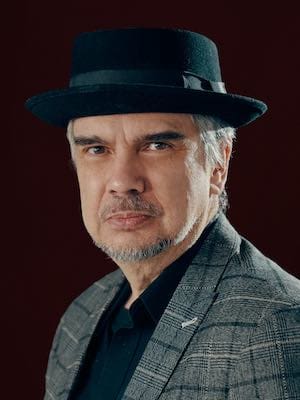As the midterm election draws near, the rise of “strict constitutionalists” threatens centuries of democratic advancements.
A romanticized interpretation of the Constitution works against the very interests of many middle-class Tea Partiers, whose rhetoric angrily demands a greater say in the life of the republic.
A simplistic, idealized understanding of the motives of the framers of the Constitution misses their self-interested, hidden agendas. Failure to seriously consider their place within colonial America and how their social location influenced how they wrote the Constitution endangers the very ideals of liberty that have, with time, come to be associated with our government.
John Locke, the father of classical political liberalism, is responsible for advancing today’s Western concept of property rights. He saw land as the third of the inalienable rights, along with “life and liberty,” creating a mercantile-class cry against royal absolutism and feudalism.
Locke argued for the right of each person, based on their self-preservation and interest, to keep whatever property they possess, despite the means utilized in its acquisition or their ability to use all of its resources.
Locke first limited the accumulation of property to what would not spoil, rust, rot or decay. However, with the introduction of a cash economy, previous limits were no longer applicable. Money became the common denominator for land as well as labor. Money did not spoil. Hence, wealth accumulated in the form of money became unlimited. Land, as a commodity represented by the abstract symbol of gold or silver, never spoiled even if the fruits grown on the land do. Thus land’s accumulation became endless.
The Founding Fathers, who were highly influenced by Locke, saw the state as a necessary construct designed to preserve life, liberty and property and was duty bound to ensure these inalienable rights. The “pursuit of happiness” was later exchanged for “land,” lest commoners took the rhetoric literally.
Meanwhile, the accumulation of property came to be considered an outward expression of intellect and virtue. Hence only landholders were permitted to vote as was the case in the early history of the United States.
Governments were created so as to translate the wealth of colonial landholders into political power. As an organization, the state was therefore needed by the landholders to guarantee their property interest. Land ownership determined political power under the guise of universal participation in government.
During the creation of the United States, the sacredness of property was reaffirmed in the Constitution, reserving the right to vote for those white males owning property. Rather than the traditional right to property being derived from the power to rule, the United States inverted this concept to reflect a right to rule in order to protect said property.
The major landholders of the time – Jefferson, Madison, Washington and so on – viewed government’s primary reason for existence as the protector of property (both land and human chattel), specifically their holdings. These notables sanctioned their privileged space through the mantle of law. Land became owned by individuals possessing title, whose purpose was to confer rights that were protected by the construction of the state’s judicial and police institutions.
Accordingly, James Madison warned in The Federalist Papers #10: “[If property owners rule, then] a rage for paper money, for an abolition of debts, for an equal division of property, or for any other improper or wicked project, will be less apt to pervade the whole body of the Union.”
Land equality became a seditious idea to be quashed because it created the possibility that the wealthy might lose their privilege within the establishing plutocracy. The goals of the young republic were fully identified with the interest of the landholders. Through their economic positions, they controlled all aspects of political life.
The interests of the common person were subordinated to the interest of this ruling class, even though pacified with rhetorical pronouncements of “life, liberty, and the pursuit of happiness.”
Fortunately, we have moved, as a political society, beyond the limited definitions of who can participate in liberty that undergirds the Constitution. Political power has moved beyond white landholders to include the landless, women and people of color.
This is why it is so disturbing that those clamoring against what they perceive as tyranny advocate a return to a strict constitutionalist position that was tyrannical to everyone who was not white, male and wealthy.
Undisclosed electoral contributions, a demonizing national media led by fanatical and ratings-hungry pundits, and an unrestricted lobbying political structure already threaten the principles of our democratic process. But to return to the limited liberties of more than 200 years ago is simply beyond the pale.
Those calling for a strict constitutionalist reading in determining the political issues of the present day unwittingly undermine their own calls for liberty, instead defending the original intent of the Founding Fathers to protect the interests of rich and powerful landholders.
Whichever plutocracy controls the means of material production (landholding Founding Fathers then; billionaire libertarians, i.e., the Koch brothers, today) also controls the means of mental production. Those who lack the means of mental production (i.e., Tea Partiers) end up subjugating themselves to the rhetoric (i.e., strict constitutionalism) that works against their best interests, but nevertheless, benefits the plutocrats.
Miguel A. De La Torre is professor of social ethics at Iliff School of Theology in Denver.
Professor of Social Ethics and Latinx Studies at Iliff School of Theology in Denver, Colorado, and a contributing correspondent at Good Faith Media.

